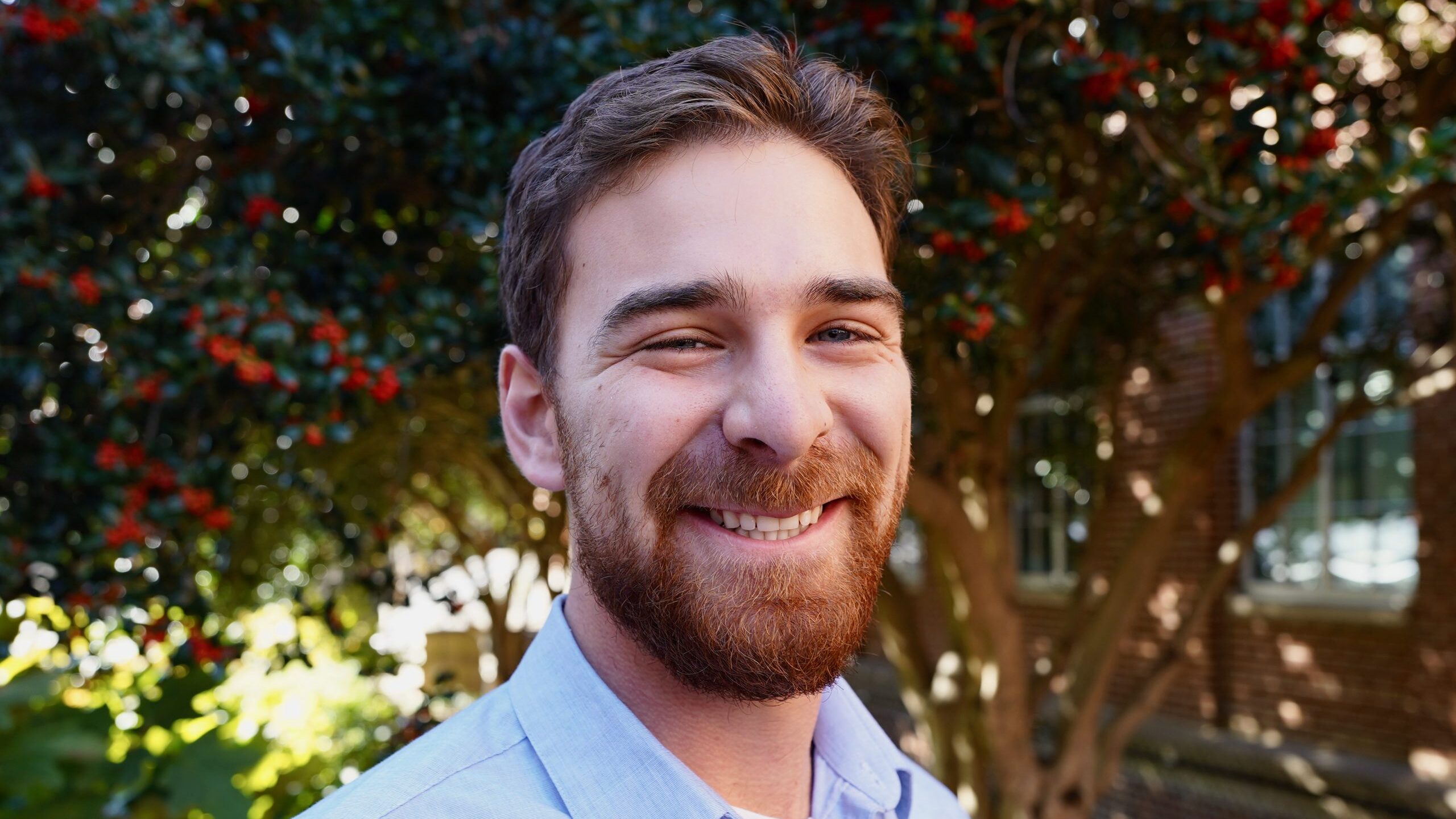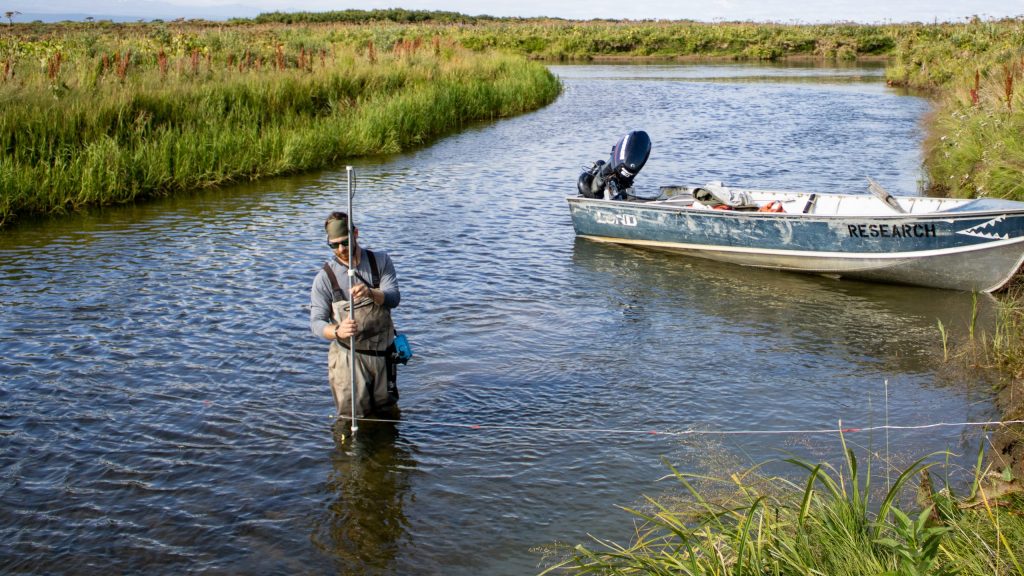Researcher Spotlight – Ben Makhlouf

2021-22 Global Change Fellow
PhD Student, Department of Applied Ecology
Advisor: Dr. Brad Taylor
Every year the Southeast Climate Adaptation Science Center funds a multi-disciplinary cohort of Global Change Fellows representing colleges across NC State University. The current cohort of students represents the decadal anniversary of this program! Here are some highlights about 2021-22 Fellow, Ben Makhlouf and the applied research he’s conducting.
About You
What do you study?
I study the effects of climate warming on montane stream fish. Specifically, I’m concerned with how shifts in spatial variation in temperature impact habitat availability for trout and how this ultimately impacts growth, abundance, and disease prevalence. Ultimately, I hope my research will be able to inform management of aquatic systems and fishery resources in a novel climate.
What (or who) influenced you to go into this field of study?
Although I’ve always been interested in ecology and wildlife science, my experience working with the Alaska Salmon fishery solidified my love for fisheries science and aquatic biology. I had the opportunity to continue working on fishery research from a laboratory research perspective, and haven’t looked back!
What is your dream job?
My dream job is to work in an academic role that produces research on aquatic and marine resources to inform science based management techniques in a novel climate. Whether at a University or government agency, I hope to use my expertise to guide resource management under uncertain future climate conditions.
About Your Research

Who will benefit from your research?
Resource managers concerned with maintaining healthy ecosystems and viable fisheries resources will be the chief beneficiary of my research. Due to the immense social, cultural, and economic value of salmonids and salmonid fisheries however, my research has the potential to benefit fishermen, local businesses, and communities that rely on these species or fisheries for their livelihoods.
How can your research be used to inform management decisions?
My research will better inform managers and fishery stakeholders on how global climate change is impacting salmonids. Although I work in montane streams in Colorado, my research is broadly applicable to salmonid species in a variety of ecosystems and may be able to inform how management techniques such as stocking, habitat restoration, and fishing limitations will need to change to maintain ecosystem health.
How would you describe your research to a 10th grader?
Climate change is causing streams to become warmer, which is decreasing habitat for trout species and forcing them to live in environments that are too warm or too crowded. I’m researching how this is impacting their ability to grow and reproduce in order to understand how even more extreme warming might impact the ecosystem in the future.
About Your Global Change Fellow Experience
How do you expect the SE CASC Global Change Fellows Program to impact you and your work?
The SE CASC Global Change Fellows program has given me an incredible space to learn about climate impacts and science tools for addressing climate questions. Many of these tools (ex. downscaling of climate data, decision science, etc.) may be useful to my own research. In addition, training on team science and co- production will be hugely important to not only conducting my research but also to communicating and implementing actionable change.
What advice would you give to a student that is interested in getting involved in your field?
This field has some of the coolest possibly opportunities for work, and you should take time to do them early in your career. It might require having multiple field jobs in a year or moving around, but gaining experience in the field is one of the uniquely incredible parts of working in wildlife. Get involved with research, professional societies, and community groups early and often. You learn the most from listening to professionals even if you’re not fully able to grasp the science yet.
What advice would you give to an incoming Global Change Fellow to get the most out of their experience?
Don’t come in with preconceived notions of how the Global Change Fellows program will or will not help you/your research. You never know how the connections and knowledge the program provides will help you or further your academic journey. Get to know the other fellows, and come ready to soak up whatever opportunities are available. If you do, there’s no limit to how much you can take away from this incredible program!
